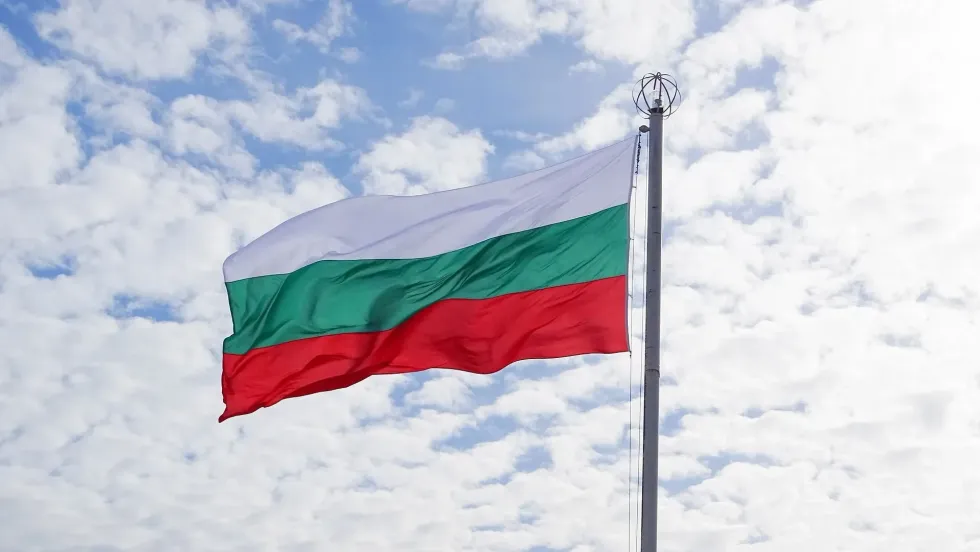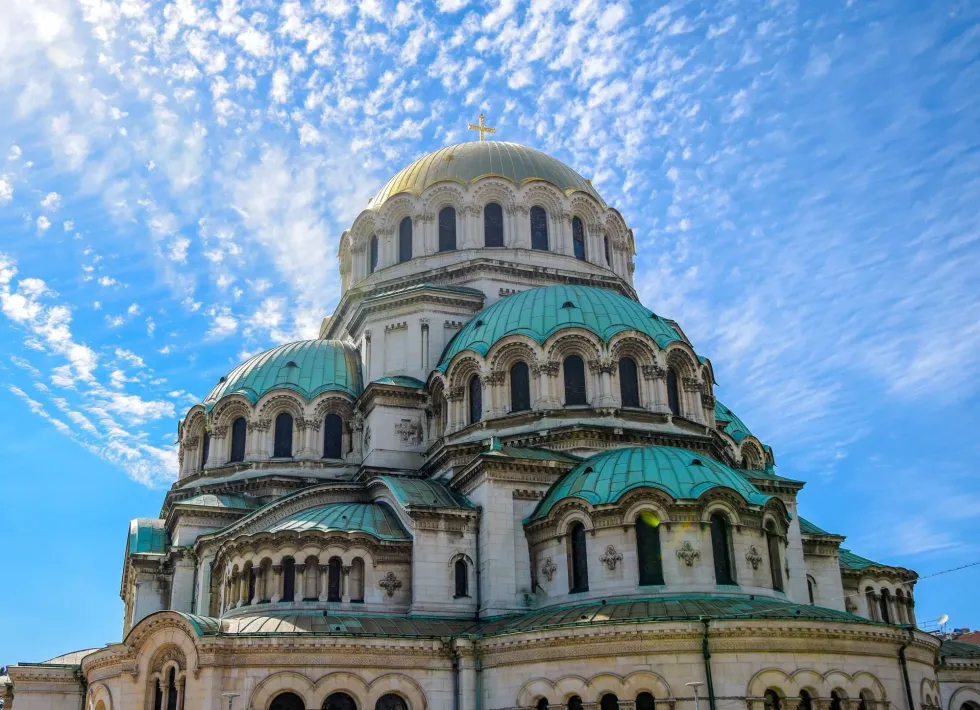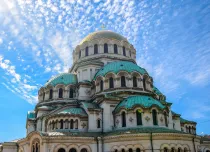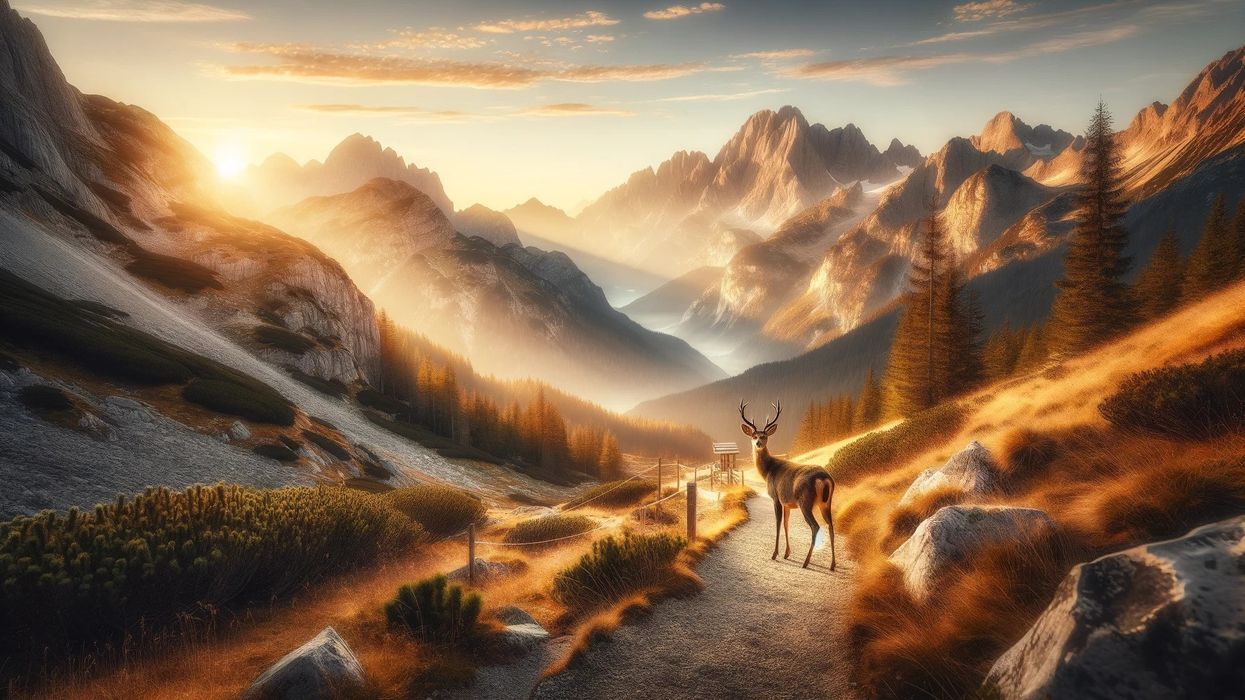55 Interesting Facts About Bulgaria: History, Language, Map & More
Bulgaria is a country in the Southeast region of Europe.
Bulgaria is located at the center of the Balkan Peninsula and is a crossroads between Europe and Asia. The country borders Greece, Macedonia, Romania, and Serbia, with the Danube River and the Black Sea being its natural borders.
Before the state was formed, it was often a stop for people from all the nearby thriving kingdoms like the Romans, Greeks, Byzantines. Bulgaria gained its independence after emerging from the ruling Ottoman Empire in the late 19th century.
The country has a moderate climate, which is eased because of the Mediterranean Sea in the south.
Bulgaria is remarkable when it comes to the scenery as the country is filled with rugged mountains, thermal springs, and resorts near the Black Sea. The country has a mix of Western and Eastern cultures that is evidently found in the architecture, cuisine, and the country's religious legacy.
Tourism in the country has increased significantly, and a large portion of the income generated by the tourism industry is put back into the maintenance of the heritage sites to increase the tourist count!
If you like this article about interesting facts about Bulgaria, be sure to check out articles about interesting facts about Bhutan and interesting facts about Chad too!
Facts About Bulgarian Culture
Bulgaria is a country with a rich history, and much of it comes down to the unique Bulgarian culture.
Nestinarstvo (fire dancing), is Bulgaria's one of the oldest local customs that are still active today. The fire dancing custom involves walking barefoot on fire, and it is followed by euphoric dancing. The custom is performed in the villages along the regions of Southern Bulgaria.
The Alexander Nevsky cathedral was the biggest cathedral in the Balkan regions. The Alexander Nevsky cathedral was established in 1912 to honor the many Russian soldiers that fought to help liberate Bulgaria from Ottoman ownership.
The language spoken in Bulgaria is Bulgarian. Even after being ruled by the Ottoman Empire for 500 years, the Bulgarian spirit and language were never forgotten.
Bulgarian is written in the Cyrillic alphabet. The Cyrillic alphabet was invented by two Bulgarian monks back in the 9th century. With Bulgaria's addition to the EU in 2007, the Cyrillic alphabet was adopted as the third official EU alphabet.
The oldest Slavic Orthodox Church is in Bulgaria! The Bulgarian Orthodox Church was recognized as an autonomous church after the country adopted Eastern Orthodox Christianity as its official religion.
During the winter, Bulgarian men, women, and children can be seen in unusual costumes. This is called 'Kukeri'. It is believed that dancing in huge masks or hats scares away evil spirits and brings a good harvest.
Bulgaria, alongside Ireland and Scotland, is the only country where the bagpipe, known as Gaida in Bulgarian, is a popular musical instrument.
Wild farming has slowly come back to many regions of Bulgaria. Locals and even foreigners have gone back to nature and live their lives on the mountain foothills in traditional houses where they enjoy a peaceful life in the natural ecosystem.
In addition to birthdays, Bulgaria also celebrates Name Day. In Bulgaria, the name day is of more importance than the birthday itself.
In Bulgaria, newborns are given the first name of their paternal grandfather, and their surname comes from the name of the father. Suffixes differ according to gender, -ov is used for boys, and -ova is used for girls.
In Bulgaria, there is a custom of spilling water in front of the door! It is said to bring good luck and is often done at special events like graduations and the beginning of a long journey.
If you visit Bulgaria, be sure to check out Baba Marta! This custom is followed in many parts of the country as a way of welcoming the spring season.
A red and white bracelet known as Martenitsa is given to friends and family to celebrate the beginning of spring. The bracelet is worn until a blossoming tree is seen by the wearer.
Bulgaria Food Facts
Bulgaria is also known for its rich cuisine that takes inspiration from other regions like Turkey and Greece.
Bulgarian Yogurt plays a huge part in Bulgarian cuisine. Stamen Grigorov, a famous Bulgarian microbiologist, and physician identified the bacillus that was responsible for natural yogurt. This beneficial bacterium was later named Lactobacillus bulgaricus to honor Stamen Grigorov and to spread the word of Bulgarian yogurt.
Bulgaria is one of the largest producers of wines! Bulgarian lands have been part of wine production for years, and in the 1980s, Bulgaria was the second-largest wine exporter in the world!
Bulgarian cuisine has a lot in common with Turkish and Greek cuisine! In a competition held by the European parliament, Shopska, a traditional Bulgarian salad, was named the best dish in all of Europe.
The Petchka, more commonly known as the traditional stove in Bulgaria is a common sight in houses all around the rural Bulgarian population. These stoves are used for cooking and heating. Village houses often use the Petchka to keep warm during the harsh Bulgarian winter season.
Rakia, an alcoholic drink produced from fermented fruits, is the national drink of Bulgaria. These homemade drinks have a light green color tone and a mild scent. In most cases, the quality of the Rakia differs from region to region.
What is Bulgaria famous for?
There are some famous personalities and heritage sites that have brought the country a lot of attention!
Stefka Kostadinova, an athlete from Bulgaria, set the world record in the high jump event when she achieved a distance of 6.8 ft (2.1 m) in 1987. This record is yet to be broken!
Yordanka Donkova, another Bulgarian, held the world record for the 328.1 ft (100 m) hurdle race at 12.21 minutes. This record was broken in 2016 by Kendra Harrison, who clocked a speed of 12.22 minutes, beating Donkova by 0.1 seconds.
Bulgaria is one of the largest producers of lavender oil. The cities of Plovdiv, Stara Zagora, Pazardzhik and Blagoevgrad are famous on a global scale for their lavender oil production. The annual produce count of Lavender in Bulgaria is around 150 t (136078 kg) a year.
There are currently nine UNESCO sites situated in Bulgaria. Seven of them are cultural sites, and two are natural sites. Some of the cultural sites are Rila Monastery, the Ancient City of Nessebar, and Madara Rider. Natural sites include the Pirin National Park and the Srebarna Nature Reserve. Currently,
Bulgaria ranks amongst the top three countries in terms of precious archeological findings. The country comes third, after Italy and Greece.
The Balkan Mountains and the Rhodope Mountains are two of the major ranges in Bulgaria. Bulgaria also has thriving biodiversity, with over 415 species of birds and 3,500 plant species.
John Vincent Atanasoff, of Bulgarian origin, was the inventor of the first electronic computer!
Bulgarian wrestler and martial arts fighter Dan Kolov holds the world record for most matches that an individual has participated in! He has participated in over 1,500 matches!
The Bulgarian flag is divided into three equal parts. The Bulgarian flag consists of white, green, and red. The white symbolizes peace, the green symbolizes wonderful nature, and the red refers to the countless lost lives in the fight for freedom.
Bulgaria ranks second in the list of countries with the most thermal springs in all of Europe.
The Boyana Church and the Rila Monastery are two of the UNESCO World Heritage Sites in Bulgaria. Boyana Church is known for its well-preserved medical frescoes in the regions of eastern Europe. The Rila Monastery is the largest Eastern Orthodox place of worship in Bulgaria.
It was found in the 10th century by John the Hermit, also known as Ivan Rilski in Bulgarian. This place has become the most popular monastery in the Balkan peninsula. The monastery houses several murals and icons.
Hristo Stoitchkov, a famous professional footballer, was from Bulgaria! Stoitchkov was known as one of the best players of his era, and he led the Bulgarian National Football team in international events and helped his country finish 4th in the 1994 Football World Cup held in the United States.
He was also awarded the prestigious Ballon d'Or award in 1994.
Veselin Topalov, a Bulgarian chess grandmaster is one of the most popular chess players that came through the Bulgarians ranks!

Weird Facts About Bulgaria
Bulgaria holds the record for the largest bagpipe ensemble in the world. The capital city of Sofia held an event in the year 2012 which saw 333 participants partaking in it!
Believe it or not, Bulgaria once fired an elected municipal official because he kept playing the game Farmville all the time! Dimitar Kerin was fired as a city councilor because he spent too much time playing the game and not enough time helping the community.
If you are visiting Bulgaria and are communicating through nods and shakes, then this could be a problem! In Bulgaria, a shake of the head means 'yes' and a nod means 'no'. So be careful if you are trying to communicate via gestures!
'Izlel e Delyu Haydutin', a Bulgarian folk song, was playing on board the Voyager I when it was sent into space. Apparently, the song was sent as a message for alien life in the universe!
The Bulgarian Army has neither won nor lost a battler in its history! The Bulgarian flag has never been seized during battle.
Bulgaria has one of the fastest declining populations in Europe! It is believed that corruption in the country is responsible for this.
After Bulgaria became a part of the EU in 2004, the population dropped from nine million to seven million in a span of 10 years. Joining the EU meant many Bulgarian citizens left the country to work in western European countries.
This government tried to tackle this steep population decline by issuing passports to Bulgarians living in other countries like Moldova and Macedonia.
Much of the young Bulgarian generations have left the country and have made a living in wealthier countries where they can double or even triple their earnings. The European Union plays a massive role in this, as now Bulgarians can easily move across borders, which is the right of any European citizen.
Houses in Bulgaria are cheap! You can buy a house with a barn and another half-acre land for as little as $10,000.
The capital city of Sofia is one of the busiest cities in Bulgaria. Because of this, the city needs reliable transportation systems in place.
Buses and trams can be found on the roads easily, but underground movement in the city can be hectic. As of now, there are only two subway lines in the city.
Working on underground facilities is hampered by the presence of several archaeological sites that are situated under the surface of the city.
Because of this disturbance, the construction of the two subway lines took almost 30 years to complete! The Serdika Metro Station is one such example of these archaeological findings, as the buildings around this area can be seen merging with remnants of Roman structures.
The largest-ever gold treasure find happened in Bulgaria! In 1972, a worker near the city of Varna, which is located on the Black Sea coast, came across what is now known as the largest ancient graveyard in the world.
The Varna Necropolis, as it is called, was full of gold artifacts! It is assumed that the necropolis was made by the Thracians, a warrior aristocracy that resided in Bulgaria and nearby regions. Gold was valued by them and hence it was used in the burial rituals.
The capital city of Sofia is built on top of Roman ruins! Serdica, one of the crucial hubs in the Roman Empire, covered the entire territory that Sofia is situated on.
Because of this, various Roman ruins can be found throughout the city. In 2004, work on a large hotel complex was halted for a while in Sofia because construction workers found remnants of the Amphitheatre of Serdica. However, the findings could not stop the construction, and the hotel was named Arena di Serdica after the amphitheater.
Covering your face with fabrics is illegal in Bulgaria! Covering the face in streets, gardens, parks and public transport is seen as an illegal act.
Did You Know?
Peter Petroff, a Bulgarian, created the first digital wristwatch in the world. Bulgaria, known for its numerous archaeological sites is also blessed geographically! The Musala Peak is the highest mountain peak in the Balkan region. The peak is located in the Rila mountain range and rises 9596.5 ft (2925 m) above sea level.
Bulgaria is known for its wildlife, and the fact that wolves and brown bears maintain a healthy population in the country is evidence of the thriving ecosystem. These animals can be found wandering the luscious mountain ranges.
Wolves are not a protected species as of now, but there are plans underway to make wolf hunting illegal. The wolf population in the country is estimated to be around 2,000-3,000 individuals, and they can be found mainly in the southwestern parts of the country.
Brown bears can be found wandering in the Central Balkan National Park and in the Rhodope Mountain range.
The brown bear population is estimated at around 400-700, and there are several laws in Bulgaria that prohibit the use of chained bears in street entertainment methods. Captured bears are rehabilitated into the wild.
Even with the presence of wolves and bears, the Rhodope Mountain range is used as a region by livestock farmers. In order to make it less scary, the Bulgarian government encourages people to learn more about the environment.
Rhodope mountain is open to various activities like hiking and caving that are often a part of the tour in which tourists and locals alike can partake.
Bulgaria ranks second amongst the countries in Europe in natural mineral springs. Bulgarian towns and cities are abundant with these springs and are visited by tourists all year long.
80% of the world's rose oil is produced in Bulgaria! The Rose Valley region in Bulgaria is known for its massive rose oil production and it is estimated that around 1.7 U.S tons (1.5 tonnes) of rose oil are produced in the country.
Bulgaria is among the few countries that sided with the Jews during World War 2's Nazi Germany regiment. Bulgaria did side with the Nazis, however, when Adolf Hitler ordered them to deport the Jewish population of the city to concentration camps, Bulgaria protested.
The population took to the streets to protest against this and they stood up for the safe being of the Jewish population in the country. In a way, the Bulgarian people showed the world that oppression should not be tolerated.
Spartacus, a Thracian hero, was born in the vast Bulgarian lands. He was later on his life enslaved by the Romans and later managed to escape with other slaves and started a revolution later on that would wage war against the Roman occupation.
Bulgaria is the oldest European country and is the only country that has never changed its name since it was founded. The first Bulgarian empire thrived in the early 10th century and brought influence to other European countries with its unique culture, art, and literature.
Bulgaria is one of the safest countries in Europe. The crime rate in the country is low, there are no military struggles, public protests are limited and the country has a secular feel to it because of which various religions thrive in the country. Bulgaria is home to Muslims, Jews, Roman Catholics, and Bulgarian Orthodox.
The capital city of Sofia is approximately 7,000 years old, and the city is the second oldest city in all of Europe.
Bulgaria ranks among the fastest-growing European nations in regards to technological advancements. The country is also several times cheaper compared to other larger European countries.
The Burgas Province is home to the ancient town of Nesebar, or Nessebar. This seaside resort is a museum full of artifacts from ancient times.
The forest regions of Bulgaria are among the densest in the world, and an estimated 30% of Bulgaria is covered with dense forests. At least 8,000,000 acres (32374.85 sq.km.) of land is comprised of forest areas.
The Rafail's Cross is a wooden cross that is made from one piece of wood. This cross was carved by Rafail, a monk, and he used magnifying lenses to recreate at least 650 miniature figures and 104 religious scenes into the cross.
Here at Kidadl, we have carefully created lots of interesting family-friendly facts for everyone to enjoy! If you liked our suggestions for interesting facts about Bulgaria, then why not take a look at interesting facts about Burundi, or interesting facts about Kuwait?
We Want Your Photos!
More for You
Bachelor of Arts specializing in English, Master of Arts specializing in English

Rajnandini RoychoudhuryBachelor of Arts specializing in English, Master of Arts specializing in English
With a Master of Arts in English, Rajnandini has pursued her passion for the arts and has become an experienced content writer. She has worked with companies such as Writer's Zone and has had her writing skills recognized by publications such as The Telegraph. Rajnandini is also trilingual and enjoys various hobbies such as music, movies, travel, philanthropy, writing her blog, and reading classic British literature.
Disclaimer
1) Kidadl is independent and to make our service free to you the reader we are supported by advertising. We hope you love our recommendations for products and services! What we suggest is selected independently by the Kidadl team. If you purchase using the Buy Now button we may earn a small commission. This does not influence our choices. Prices are correct and items are available at the time the article was published but we cannot guarantee that on the time of reading. Please note that Kidadl is a participant in the Amazon Services LLC Associates Program, an affiliate advertising program designed to provide a means for sites to earn advertising fees by advertising and linking to Amazon. We also link to other websites, but are not responsible for their content.
2) At Kidadl, we strive to recommend the very best activities and events. We will always aim to give you accurate information at the date of publication - however, information does change, so it’s important you do your own research, double-check and make the decision that is right for your family. We recognise that not all activities and ideas are appropriate for all children and families or in all circumstances. Our recommended activities are based on age but these are a guide. We recommend that these ideas are used as inspiration, that ideas are undertaken with appropriate adult supervision, and that each adult uses their own discretion and knowledge of their children to consider the safety and suitability. Kidadl cannot accept liability for the execution of these ideas, and parental supervision is advised at all times, as safety is paramount. Anyone using the information provided by Kidadl does so at their own risk and we can not accept liability if things go wrong.
3) Because we are an educational resource, we have quotes and facts about a range of historical and modern figures. We do not endorse the actions of or rhetoric of all the people included in these collections, but we think they are important for growing minds to learn about under the guidance of parents or guardians.







